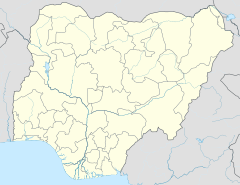
The 2009 Boko Haram uprising was a conflict between Boko Haram, a militant Islamist group, and Nigerian security forces. Violence across several states in northeastern Nigeria resulted in more than 1,000 dead, with around 700 killed in the city of Maiduguri alone, according to one military official.

Boko Haram, officially known as Jamā'at Ahl as-Sunnah lid-Da'wah wa'l-Jihād, is a terrorist organization based in northeastern Nigeria, which is also active in Chad, Niger and northern Cameroon. In 2016, the group split, resulting in the emergence of a hostile faction known as the Islamic State's West Africa Province.

Gwoza is a local government area of Borno State, Nigeria. Its headquarters are in the town of Gwoza, a border town "about 135 kilometres South-East of Maiduguri." The postal code of the area is 610.

The Boko Haram insurgency began in July 2009, when the jihadist group Boko Haram started an armed rebellion against the government of Nigeria. The conflict takes place within the context of long-standing issues of religious violence between Nigeria's Muslim and Christian communities, and the insurgents' ultimate aim is to establish an Islamic state in the region.
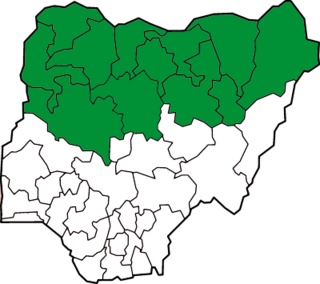
A series of attacks occurred during Christmas Day church services in northern Nigeria on 25 December 2011. There were bomb blasts and shootings at churches in Madalla, Jos, Gadaka, and Damaturu. A total of 41 people were reported dead.

A series of assaults on businesses occurred in northeastern Nigeria on 5 and 6 January 2012, followed by attacks on police stations and government offices in the north on 20 January. Over 180 people were killed.

Enenche Akogwu,, a Nigerian journalist and cameraman for Channels Television in Kano, was investigating Boko Haram terrorism when he was shot and killed by an unidentified gunman. His work mainly focused on human rights, politics, and war. He covered news stories across the northern region of Nigeria.
The Konduga massacre took place in Konduga, Borno State, Nigeria on 11 February 2014. The massacre was conducted by Boko Haram Islamists against Christian villagers. At least 62 people were killed.
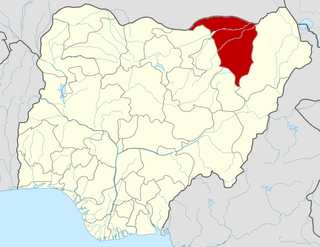
On February 25, 2014, fifty-nine boys were killed at the Federal Government College of Buni Yadi in Yobe State, Nigeria. The twenty-four buildings of the school were also burned down as a result of the attack. No group has claimed responsibility for the attack, but according to media and local officials the Islamist militants Boko Haram are suspected to be behind the attack.
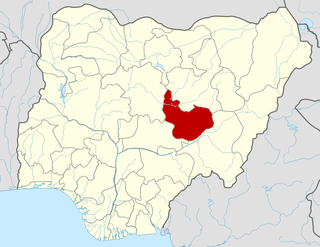
On 20 May 2014, two bombs exploded in Jos, Plateau State, Nigeria, killing at least 118 people and injuring more than 56 others. The first bombing occurred in a marketplace, and the second near a bus station. Though no group or individual has claimed responsibility, the attacks have been attributed to Boko Haram.
The Izghe attack was a terrorist incident that occurred on February 15, 2014.

On the evening of 1 June 2014, an improvised explosive device was set off at a football field in Mubi, Adamawa State, Nigeria. At least 40 people were killed in the attack, according to eyewitnesses. Nineteen others were injured. The perpetrators of the attack were not clear, although media reports generally blamed Boko Haram.
From 20 to 23 June 2014, a series of attacks occurred in Borno State, Nigeria. 91 women and children were kidnapped in the attacks and more than 70 people were killed.

Between 23 and 25 June 2014, a series of attacks occurred in central Nigeria. On 23–24 June, gunmen attacked a number of villages in Kaduna State, killing around 150 people. The attack was blamed on Fulani tribesmen. On 25 June 2014, a bomb exploded at the Emab Plaza in the national capital of Abuja, killing at least 21 people. In response to the bombing, the Nigerian military raided two militants camps on 26 June, killing more than 100 people.
The following lists events from 2014 in Nigeria.

The 2014 Kano bombing was a terrorist attack on November 28, 2014 at the Central Mosque in Kano, the biggest city in the mainly Muslim Northern Nigeria during the Islamist insurgency in Nigeria. The mosque is next to the palace of the Emir of Kano, Muhammad Sanusi II, Nigeria's second most senior Muslim cleric, who had urged the civilians to protect themselves by arming up against Boko Haram. Two suicide bombers blew themselves up and gunmen opened fire on those who were trying to escape. Around 120 people were killed and another 260 injured.
The following lists events that happened during 2012 in Nigeria.
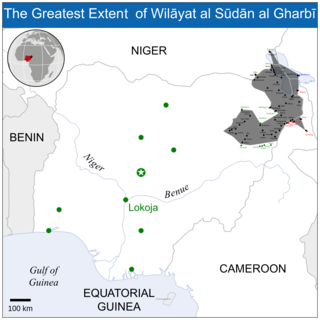
Starting in late January 2015, a coalition of West African troops launched an offensive against the Boko Haram insurgents in Nigeria.
Ahmed Abba is a Cameroonian journalist, correspondent for the Hausa broadcast service operated by Radio France Internationale. He was questioned and detained for his reportage on Boko Haram and was incarcerated in Cameroon for 876 days. He was released in Yaoundé on December 22, 2017.
